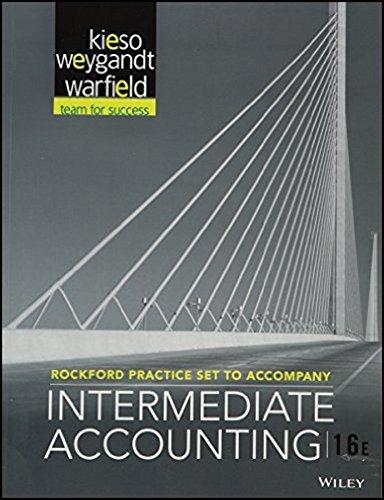Question
Auditing and Assurance (ACC3AUD) Q1 The objective of a review-level engagement is to state that 'nothing has come to our attention that causes us to
Auditing and Assurance (ACC3AUD)
Q1
The objective of a review-level engagement is to state that 'nothing has come to our attention that causes us to believe that the subject matter does not conform in all material respects with identified criteria'. This type of statement conveys:
reasonable assurance
negligent performance
limited assurance
positive assurance
none of the alternatives
Q. 10
What does an auditor do?
provide a guarantee on the ongoing viability of a company
provide an independent opinion on the financial report
help management to produce the financial report
ensure that the financial report contains no error or fraud
none of the alternatives
Q. 11
The report provided to the client from an agreed upon procedures engagement is:
report on procedures performed
report on factual findings
client engagement report
results from procedures report
none of the alternatives
Q. 12
Within what time period of ceasing employment with their audit firm is an auditor able to become an officer at that firm?
6 months
1 year
2 years
3 years
none of the alternatives
Q. 15
Policies regarding rotation of partners and staff is a safeguard against which threat to independence?
Familiarity
Self-interest
Self-review
Intimidation
none of the alternatives
Q. 18
Threats to auditor independence can come from various sources. Which of these is referred to in the Code of Ethics as a self-review threat?
the possibility of potential employment with the audit client
preparation of original data used to generate a financial statement that is the subject matter of the audit engagement
concern on the part of the auditorabout the possibility of losing the engagement
pressure to reduce inappropriately the extent of work performed in order to reduce fees
none of the alternatives
Q. 19
What best describes the 'agency problem' that results in a demand for audits?
shareholders act in their own interests and not in the interests of the company
banks have different information expectations to shareholders
managers act first in the interests of shareholdersto the detriment of creditors
managers act in their own interests rather than the interests of shareholders
none of the alternatives
Q. 2
The fundamental ethical characteristics required of professional accountants are:
professional behaviour, experience and expertise
integrity, objectivity and competence
authority, community sanction and knowledge
self-interest, self-review and familiarity
none of the alternatives
Q. 20
Safeguards against self-review threats include:
minimising the provision of non-audit services provided to a client
establishing policies banning business relationships with clients
rotation of partners and audit staff
avoidance of fee dependence
none of the alternatives
Q. 3
Investors shift financial responsibility for audited financial information to the auditor in order to lower the expected loss from litigation or related settlements. This describes which theory of auditing?
agency theory
explanatory theory
information hypothesis
insurance hypothesis
none of the alternatives
Q. 4
The essence of the audit function is to:
detect fraud
examine individual transactions so that the auditor may certify as to their validity
determine whether the client's financial report is fairly presented
ensure the consistent application of correct accounting procedures
none of the alternatives
Q. 5
Which of the following would be an example of a reasonable assurance engagement?
the review of annual financial statements
the audit of annual financial statements
the reporting of procedures performed by the auditor as agreed by the client
the review of half-year financial report
none of the alternatives
Q.6
Which of the following is seen as familiarity threat?
a guarantee from an officer of an assurance client
performing services for an assurance client that directly affects the subject matter of the assurance engagement
Long association of a senior member of an assurance team with the assurance client
pressure to reduce inappropriately the extent of work performed in order to reduce fees
none of the alternatives
Q. 7
The expectation gap is caused by:
realistic auditor expectations
unrealistic users expectations
realistic users expectations
unrealistic auditor expectations
none of the alternatives
Q. 8
Who is the responsible party for the adequacy of the disclosure in the financial report and accompanying notes?
auditor in charge of the fieldwork
management of the entity
auditor who signs the audit report
the accounting clerk who assists in preparing the report and footnotes
none of the alternatives
Q. 9
Who are the primary financial report users that auditors need to be concerned about?
managers of the audited firm
banks who provide capital to the firm
the general public
shareholders of the firm
none of the alternatives
Q. 13
Auditors can generally easily find fraud that has been perpetrated within an entity.
True
False
Q. 14
Insurance hypothesis is a means whereby the investor can guarantee the success of their investment.
True
False
Q. 15
The Corporations Act requires the retention of audit working papers for seven years.
True
False
Q. 17
The primary responsibility for fraud prevention and detection remains with those charged with governance.
True
False
Step by Step Solution
There are 3 Steps involved in it
Step: 1

Get Instant Access to Expert-Tailored Solutions
See step-by-step solutions with expert insights and AI powered tools for academic success
Step: 2

Step: 3

Ace Your Homework with AI
Get the answers you need in no time with our AI-driven, step-by-step assistance
Get Started


